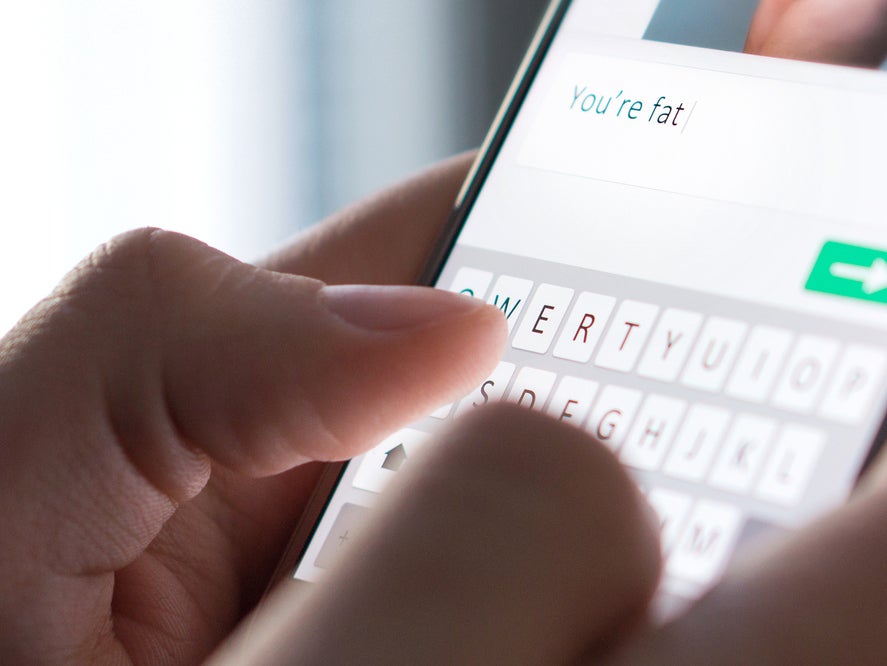Generation Z teenagers have more mental health problems despite drops in smoking, drugs and antisocial behaviour
‘This study is a wake-up call to the different pressures today’s teenagers are under,’ says Royal College of Psychiatrists

Your support helps us to tell the story
From reproductive rights to climate change to Big Tech, The Independent is on the ground when the story is developing. Whether it's investigating the financials of Elon Musk's pro-Trump PAC or producing our latest documentary, 'The A Word', which shines a light on the American women fighting for reproductive rights, we know how important it is to parse out the facts from the messaging.
At such a critical moment in US history, we need reporters on the ground. Your donation allows us to keep sending journalists to speak to both sides of the story.
The Independent is trusted by Americans across the entire political spectrum. And unlike many other quality news outlets, we choose not to lock Americans out of our reporting and analysis with paywalls. We believe quality journalism should be available to everyone, paid for by those who can afford it.
Your support makes all the difference.Mental health problems and self-harm are on the rise among British teenagers despite significant decreases in antisocial behaviour and substance use, a long-running study has found.
Depressive symptoms among “Generation Z” – teenagers born at the turn of the millennium – are around two-thirds higher than the “millennial generation” born in the early nineties.
They are also more likely to self-harm, suffer from poor body image, skip sleep and be overweight, according to the research from University College London.
But other behaviours associated with poor physical and mental health, including smoking, drug and alcohol use, and vandalism have declined.
“It has seemed for a while that mental health difficulties in young people are on the rise, but this study really highlights the scale at which this increase might be occurring,” said Dr Suzanne Gage, co-author of the study.
The findings come from analysis of two studies, the Millennium Cohort, which follows 11,000 young people born in 2000-01 and the Children of the 90s study, which has followed 5,600 people since 1991-1992.
Both groups were asked identical questions at the age of 14 to minimise differences in how depression was measured, Dr Gage added.
The study found 14.8 per cent of 14-year-olds in 2015 said they were depressed, compared to 9 per cent in 2005. While 14.4 per cent of young people said they had self-harmed, compared to 11.8 per cent a decade ago.
The study comes in the wake of a government vow to crack down on harmful content on social media sites following the death of 14-year-old Molly Russell, who took her own life in 2017.
Her father has said Instagram helped to kill his daughter after he found she had been viewing graphic images of self-harm on the site. By some estimates one-in-four teenage girls have self-harmed in the past year.
While girls from both groups were more likely than boys to be depressed and to self-harm, the rate at which these problems were rising was the same for both genders, researchers said.
In 2005 more than 52 per cent of those born in the early 1990s had tried alcohol by 14, compared with less than 44 per cent in 2015. The study also found rates of 14-year-olds punching or kicking someone on purpose have dropped from 40 per cent to 28 per cent, and teenagers committing acts of vandalism have decreased from 6 per cent to 2 per cent.
“The increasing trends of poor sleep, obesity and negative body image might help explain rising mental health difficulties experienced by young people,” said fellow author Dr Praveetha Patalay.
“Where the trends are moving in opposite directions – decreasing substance use and antisocial behaviour – the interpretation becomes more complicated.”
Dr Bernadka Dubicka, chairwoman of the child and adolescent faculty at the Royal College of Psychiatrists, said: “This study is a wake-up call to the different pressures today’s teenagers are under and the impact these may have on their mental health.”
She said there was an urgent need to increase mental health support staff to meet these growing demands.
Join our commenting forum
Join thought-provoking conversations, follow other Independent readers and see their replies
Comments